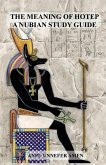During the late Hellenistic and early Imperial periods (B.C. 50 - A.D. 300), important developments may be traced in the philosophy of language and its relationship to mind. Focusing on two basic issues, why is language intelligible and how is communication possible, Robertson traces some related attempts to reconcile immaterial, intelligible reality and the intelligibility of language, explain the structure of language, and clarify the nature of meaning. These shared problems are handled with greater philosophical sophistication by Plotinus, although the comparison with Philo, Clement, and Origen illustrates significant similarities as well as differences between Neoplatonism and early Jewish and Christian philosophy.








